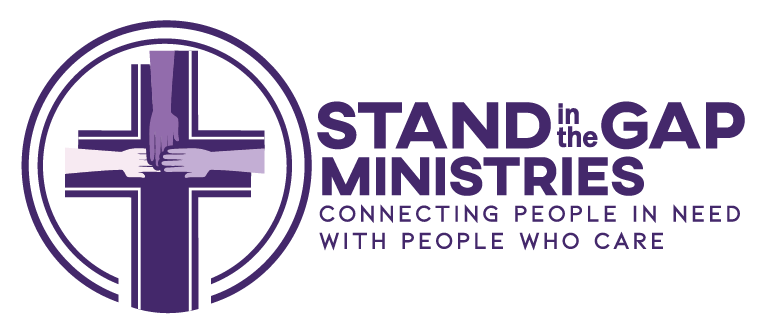"You could argue that the entire goal of the Christian life is to move from a heart of entitlement to one of gratitude."
Blake Zimmerman
Spiritual Formation Pastor, Church on the Move
“Rejoice always, pray without ceasing, give thanks in all circumstances; for this is the will of God in Christ Jesus for you.” – The Apostle Paul
Parenting young children is one of the hardest things I’ve ever done.
No amount of reading or conversations with other parents can prepare you for the
selflessness and sacrifice that parenting requires. That free time that was once yours? It now belongs to your tiny humans. That food in your fridge? It belongs to them. That sleep you so deeply value and hold dear? Go ahead and kiss it goodbye.
But do you know what would make that forced life of selflessness and sacrifice a little bit easier? If those tiny humans that take over your free time, your fridge, and your sleep would occasionally let slip two very simple words: “Thank you.”
In case you haven’t noticed, we humans don’t exactly come out of the womb saying,
“Thank you.” Our natural state is to assume that we have a right to anything and
everything we want. We point, we yell, we grab, we take. At some point, however, it is the duty of the parent to train the child into a life of increasing gratitude.
Like a good parent who guides their child into a life of gratitude, so too does God desire to do the same with us. In fact, you could argue that the entire goal of the Christian life is to move from a heart of entitlement to one of gratitude. Think about it. The godliest people you know are also likely the most grateful people you know. They’re the people that find joy in the little things just as much as the big things. Mature disciples are those that recognize and receive all of life as a gift, from the salary they make to the roof covering their heads, all the way down to the air filling their lungs.
Unfortunately, I think many Christians see gratitude as a practice that depends on good circumstances. We get a raise, we buy a new house, we eat a delicious hamburger, and then we say, “Thank you!” But the picture Paul paints at the end of his letter to the Thessalonians is different. He says to “give thanks in all circumstances” (1 Thess. 5:18). Which circumstances? All circumstances. For the Thessalonians, that “circumstance,” most scholars believe, was severe persecution.
If the disciples in that community saw gratitude as something only to be practiced
whenever circumstances are good, then they might never have practiced it. But if,
rather, they saw gratitude as something that can be practiced in any circumstance, then their job was to look for the everyday gifts that God had given them. This leads us into the heart of practicing gratitude in a sinful and broken world: We don’t wait for good things to happen; we find the good in all things.
The Christian practice of gratitude is not about waiting for the right circumstances to come about that then provoke feelings of gratitude inside of us. Rather, it’s us diligently searching, especially amid bad circumstances, and finding something to be grateful for.
Are you in an especially hard season right now? Is your life defined by suffering,
setback, or failure? Perhaps the greatest spiritual discipline available to you at this
moment is gratitude. In a season of suffering or rough circumstances, finding something to be grateful for is a form of spiritual warfare. It’s a way of protecting your heart from cynicism, anxiety, and disillusionment.
For me, this practice is extremely simple. At the start of each day, I write down three things I am grateful for. I do this at the beginning of the day to ground my heart in what I have rather than what I don’t have. Sometimes the gifts are big—like my wife, my kids, my job, my house, etc. Other days it’s small—good weather, my chair, the cup of coffee in my hand. The key—and don’t miss this—is to look for something present in your life and name it as a gift. When we name things as a gift, we are acknowledging the fact that it did not originate with us (even that cup of coffee you made came from beans that a farmer grew for you and a roastery that roasted it for you!), and we are committing, also, to not use these gifts for our own purposes but for the glory of God.
What about you? What daily habit (I think daily is important) can you implement to help your heart move away from entitlement and towards gratitude? You might purchase a gratitude journal. You might set a reminder on your phone for noon each day that says, “TELL GOD THANK YOU.” You might make it a habit to recite a Psalm of thanksgiving each morning.
Whatever it is, the most important thing is to begin. Our habits shape us, for better or worse. A life of bad habits will always yield a certain kind of life. A life of godly habits, on the other hand, can’t help but yield a different kind of life. What would your life look like a year from now if you increased in gratitude? How would your relationship with your spouse be different? Your kids? Your job? Your God?
May our words and hearts align with those of the psalmist in Psalm 100:
Make a joyful noise to the LORD, all the earth.
Worship the LORD with gladness;
come into his presence with singing.
Know that the LORD is God.
It is he that made us, and we are his;
we are his people, and the sheep of his pasture.
Enter his gates with thanksgiving,
and his courts with praise.
Give thanks to him, bless his name.
For the LORD is good;
his steadfast love endures forever,
and his faithfulness to all generations.




